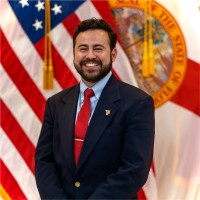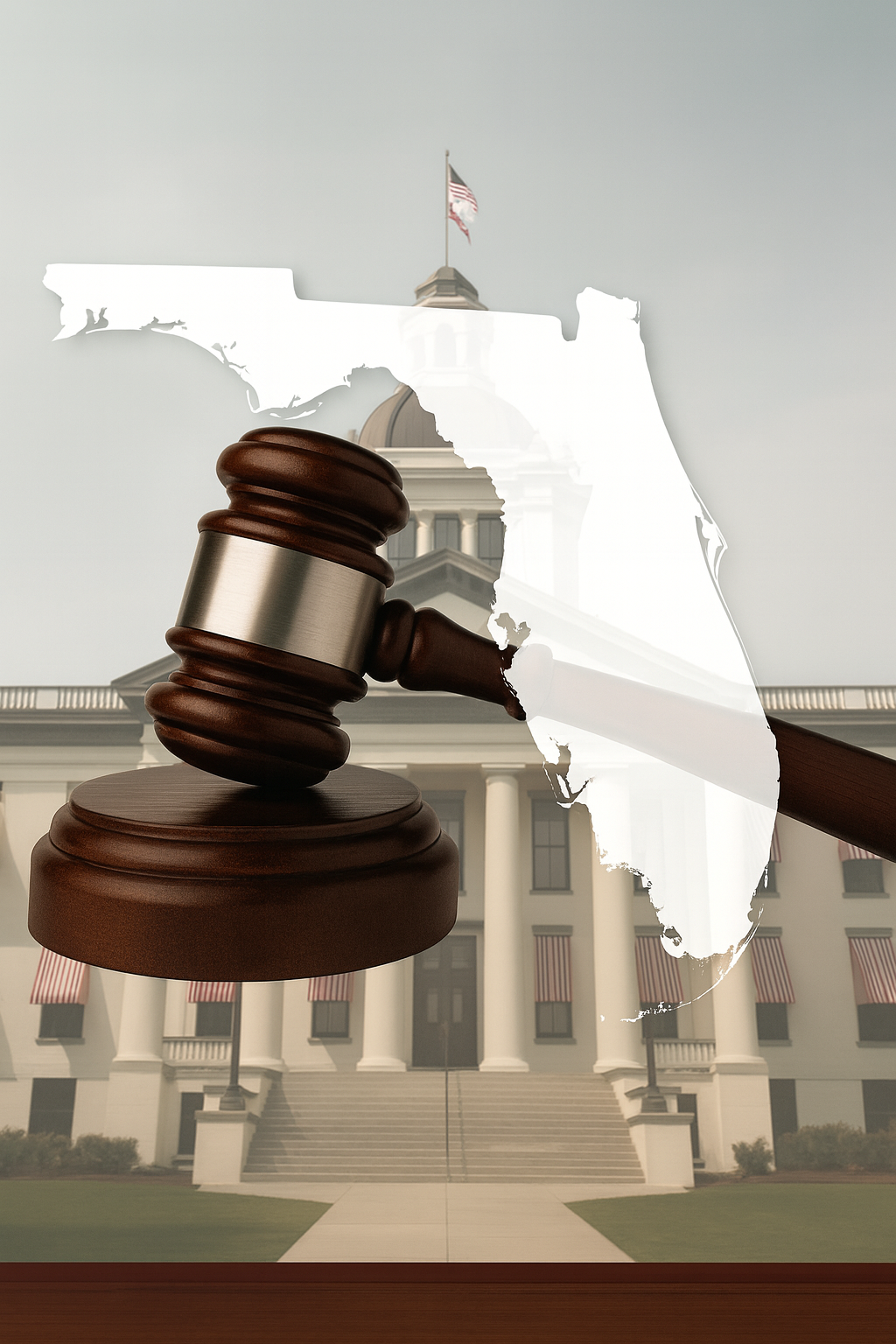Florida PIP Can Work – Let’s Make It

“If they have a reform where we can show that it’s going to lower rates, it’s fine. But let’s just be clear… I don’t want to do anything that’s going to raise the rates.”
— Governor Ron DeSantis, Florida Phoenix, March 4, 2025
Florida’s “Due Diligence” Approach Is Paying Off
Governor DeSantis’ decision to veto PIP repeal has allowed the legislature more time to measure the results of tort reform — and the data is clear.

According to the Florida Office of Insurance Regulation (FLOIR): as of June 29, 2025
- The top five auto insurers, representing 78 percent of the market, have filed average rate decreases of 6.5 percent for 2025.
- Some carriers report reductions as deep as 11.5 percent.
Lower premiums are proof that smart reform works — not repeal.
Florida families are finally seeing relief from years of rising costs. The next step is to close loopholes that still cause unfair denials and disputes.
The EMC Transparency Bill
- Patients: Get full benefits from legitimate, independent exams.
- Providers: Gain clear rules and faster reimbursement.
- Insurers: See fewer disputes and lower fraud risk.
- Lawmakers: Continue Florida’s record of responsible, data-driven reform.
Call to Action
Support the EMC Transparency Bill — The Independent EMC Examination Amendment

The EMC Loophole Still Hurts Patients and Providers
Under current PIP law (§627.736), patients only receive the full $10,000 benefit if an Emergency Medical Condition (EMC) is certified. But too often that certification comes from a paper-only “peer review” — a provider reading records instead of examining the patient.
- Peer reviews = no exam, no interaction, no real assessment.
- Some are influenced by chiropractors or attorneys involved in the claim.
- Insurers challenge EMCs, leading to delays and litigation.
- Patients lose access to the benefits they need.
A peer review is not a medical exam — and Florida law should say so.

The EMC Transparency Bill:
The Independent EMC Examination Amendment
Amendments to §627.732(16) and §627.736(1)(a)(3)
1. Require a Real Examination — Not a Peer Review
- Every EMC must be based on a direct medical examination, conducted either in person or via secure telemedicine.
- A peer review (record-only evaluation) shall not qualify as an EMC determination.
2. Guarantee Independence
- The examiner must be independent of any referring chiropractor, or financially connected entity.
- Independence protects patients and insurers and prevents conflicts of interest.
Honest exams protect honest patients. Support the EMC Transparency Bill.
Build on Proven Success
- Tort reform worked — rates are down.
- The market is stabilizing and fraud is declining.
- Repealing PIP now would undo progress.
- Fixing the EMC loophole keeps premiums low and coverage strong.
Florida’s insurance market is improving. Let’s finish the job — not start over.
How This Reform Builds on Florida’s Legislative Foundation
The EMC Transparency Bill aligns with the spirit of past Florida legislation addressing fraud, kickbacks, and patient exploitation — laws that strengthened accountability but left this EMC loophole unresolved.
Correlated Florida Bills
- CS/CS/SB 1120 (2020) – Substance Abuse Services (Sen. Gayle Harrell): tightened oversight on treatment centers and billing./li>
- CS/CS/HB 649 (2020) – Patient Brokering (Rep. Mike Caruso): criminalized referral kickbacks in healthcare./li>
- CS/CS/HB 425 (2018) – Physician Fee Sharing Task Force (Rep. Susan Plasencia): examined profit-sharing in medical referrals./li>
- CS/CS/HB 119 (2012) – Motor Vehicle Personal Injury Protection (Rep. Jim Boyd): established the current EMC requirement under §627.736./li>
- CS/CS/HB 975 (2024) – Background Screening and Certifications (Reps. Trabulsy, Bell, Campbell): expanded medical provider oversight effective July 1, 2025.
- Insurer Accountability (CS/SB 7052) by Rep. Duggan and Sen. Hutson which stipulated new factors the OIR analyze when determining whether the continued operation of an insurer be deemed hazardous to its policyholders or creditors or to the general public.
Together, these reforms demonstrate Florida’s intent to protect patients and preserve integrity in healthcare. The EMC Transparency Bill is the logical next step in this progression
Supporting Legal Framework
Florida Statutes
- Chapter 401, Medical Telecommunications and Transportation – governs emergency medical services and telehealth compliance.
- §401.45, Denial of Emergency Treatment; Civil Liability – protects patients denied proper emergency care.
Federal Correlations
The EMC Transparency Bill complements existing federal fraud-prevention and medical ethics statutes, including:
- 31 U.S.C. §§ 3729–3733 – False Claims Act
- 42 U.S.C. § 1395nn – Stark Law (Physician Self-Referral Law)
- 42 U.S.C. § 1320a-7b(b) – Anti-Kickback Statute (AKS)
- EMTALA (Emergency Medical Treatment & Labor Act, H.R. 1382, H.R. 2471, H.R. 5407) – prohibits patient dumping and mandates emergency treatment.
- EMTALA (Emergency Medical Treatment & Labor Act) – OIG Report.
These provisions reinforce the principle that patients deserve unbiased, medically justified care — not profit-driven determinations.
Evidence of the Problem
Recent EMC and PIP Fraud Cases
- GEICO v. AJ Therapy (2023): Alleged $4.6 million PIP fraud involving fake EMC claims and unlawful billing.
- State Farm Clawback Case (2024): Florida Supreme Court litigation over insurer rights to reclaim PIP payments from improper EMC certifications.
- National Healthcare Fraud Takedown (DOJ, 2023): 32 defendants charged in a $14.6 billion scheme exploiting federal and state medical payment systems.
- GEICO v. Preziosi (2025): Seeking $3.5 million that it alleges was paid out on fraudulent no-fault insurance claims.
- GEICO v. Casta MD / Cima Medical Center Corp.(2025): Claims defendants including a network of medical clinics were unjustly enriched by upwards of $104,000 in a widespread PIP fraud scheme.
Additional FCA Settlements:
- North Broward Hospital District – $69.5M (2015)
- Baptist Health System – $2.5M (2015)
- Flagler County / PST Services – $86,251 (2016)
Each case underscores how non-independent evaluations enable fraud, drive costs, and erode consumer trust.

Reinforcing fairness and access to emergency medical care for all Floridians.
Paid for by First Visit MD